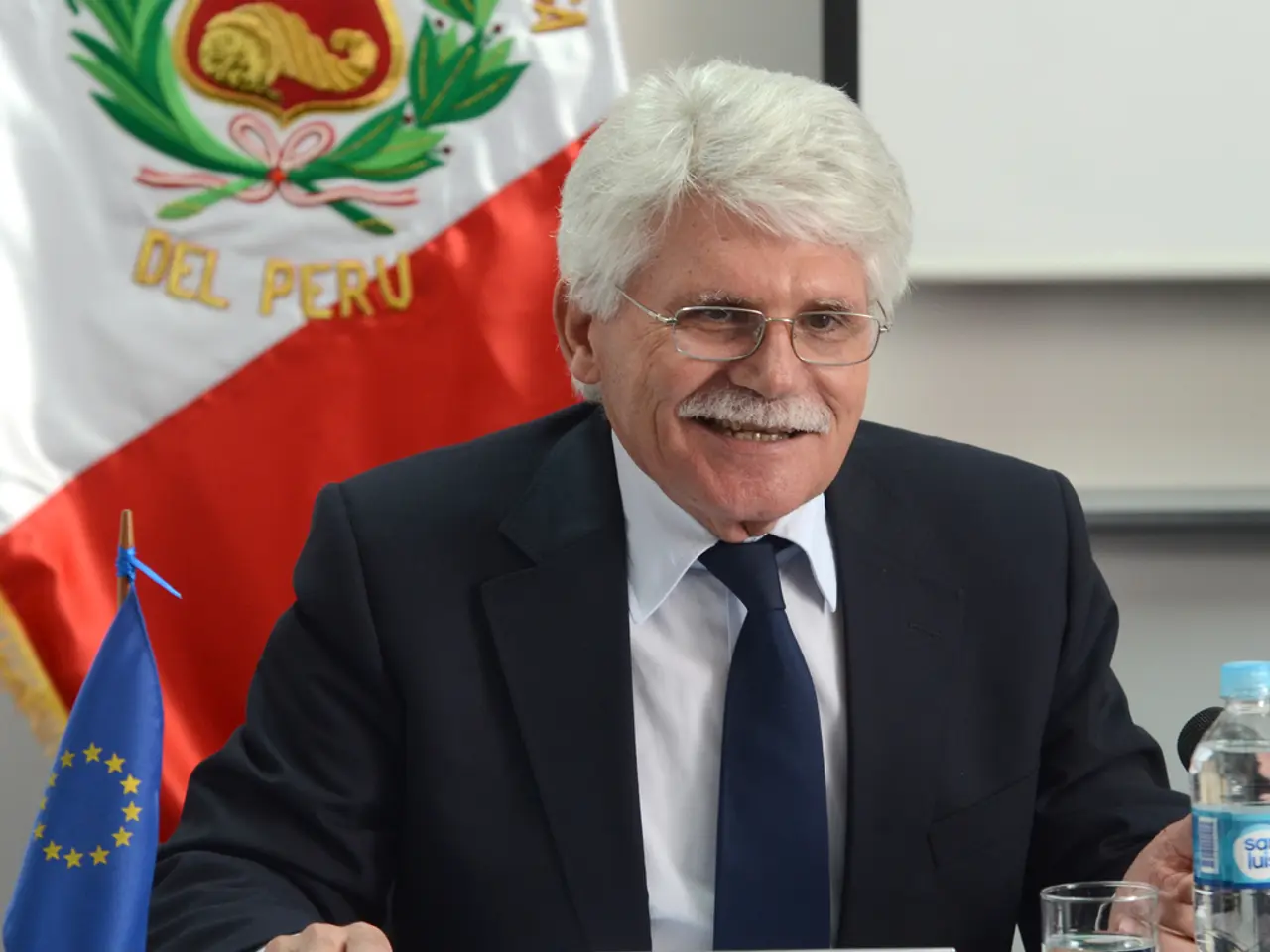Government of Peru enacts military offenses pardon bill into legislation
Peru's Amnesty Law Stirs Controversy, Halting Human Rights Investigations
Peru's newly enacted amnesty law, signed into law by President Dina Boluarte on August 13, 2025, has sparked widespread controversy and condemnation from human rights organisations, the United Nations, and the Inter-American Commission on Human Rights. The law provides blanket amnesty for alleged crimes committed by military, police, and self-defense groups during Peru’s internal armed conflict from 1980 to 2000, including human rights abuses associated with battles against the Shining Path and Tupac Amaru Revolutionary Movement (MRTA).
The legislation effectively halts ongoing trials and annuls convictions for serious violations committed by security forces and self-defense committees during that era. The law also mandates the release of people over 70 years old who were convicted for crimes committed during that conflict.
The Inter-American Court of Human Rights (IACHR) had previously urged Peru to suspend or refrain from applying the amnesty law due to its potential impact on victims' rights. Despite the court's stance, President Boluarte announced her government's intention to implement the law.
Critics deem the law a betrayal of victims and a setback for rule of law and reconciliation in Peru. The law guarantees impunity for members of the army and police accused of atrocities against civilians, many of whom were indigenous Peruvians caught in the conflict. Victims’ groups have protested, viewing the law as reopening old wounds rather than healing them.
The amnesty law benefits uniformed personnel accused or convicted of crimes committed during fighting against the Shining Path and Tupac Amaru rebel groups. The statute of limitations also helped 600 prosecuted military personnel. The new law could affect 156 cases that have been decided and more than 600 others still underway over crimes committed during a 20-year span.
The conflict in question resulted in the death of 70,000 people, according to official figures. There are more than 4,000 clandestine graves in Peru as a result of two decades of political violence, according to Peru’s Truth and Reconciliation Commission.
In August 2024, Peru adopted a statute of limitations for crimes against humanity committed before 2002. The UN report argues that Peru has a duty to investigate, prosecute, and punish gross human rights violations and crimes under international law committed during the conflict. A report by UN experts last month urged Boluarte's government to veto the amnesty law.
The specific nature of the crimes the amnesty law pertains to is not specified in the provided paragraphs, but it includes atrocities committed by former president Alberto Fujimori and his military personnel. Fujimori, who was jailed for atrocities but released from prison in 2023 on humanitarian grounds, is among those who could potentially benefit from the law.
The enactment of the amnesty law is in tribute to the military and self-defense groups that participated in the fight against terrorism. However, the law's implementation has been met with significant opposition, raising questions about its compatibility with international human rights law and its impact on the pursuit of justice for victims of the conflict.
[1] https://www.nytimes.com/2025/08/14/world/americas/peru-amnesty-law.html [2] https://www.bbc.com/news/world-latin-america-59234691 [3] https://www.reuters.com/world/americas/peru-passes-controversial-amnesty-law-2025-08-13/ [4] https://www.aljazeera.com/news/2025/8/14/peru-passes-controversial-amnesty-law-for-military-police [5] https://www.washingtonpost.com/world/the_americas/peru-passes-controversial-amnesty-law-for-military-police/2025/08/14/97c84d82-d63a-11eb-892e-1f87860a4e03_story.html
- The enactment of Peru's amnesty law, which provides immunity for alleged crimes committed during the internal armed conflict from 1980 to 2000, including human rights abuses, has sparked international controversy and has been condemned by human rights organisations, the United Nations, and the Inter-American Commission on Human Rights.
- The amnesty law has been met with opposition, as critics view it as a betrayal of victims and a setback for the rule of law and reconciliation in Peru, as it guarantees impunity for members of the army and police accused of atrocities against civilians, many of whom were indigenous Peruvians.
- The new law could affect hundreds of ongoing investigations and trials related to war-and-conflicts, crime-and-justice, and general-news, potentially reopening old wounds rather than healing them, and raising questions about its compatibility with international human rights law.





